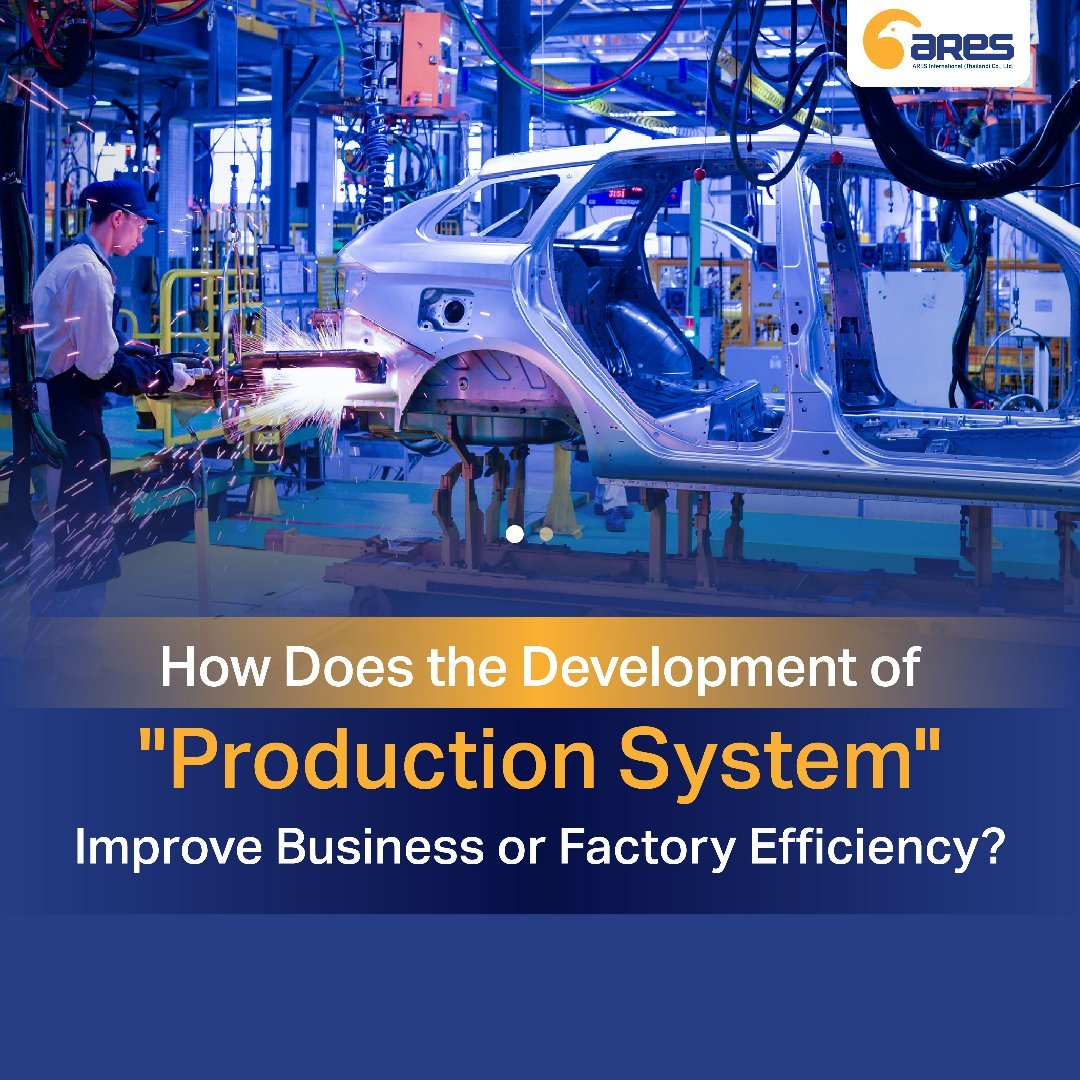What is Production Management
and How Can MES Improve It?
Why is Production Management indispensable in modern operations?
Improving production processes is a major goal for many business operators to increase output and efficiency. Achieving these goals requires vast amounts of data for analysis and decision-making, making efficient data management an unavoidable challenge for production managers.
The answer to this challenge is to apply technology to better utilize data, accurately predict market demand, and help manufacturers plan more effectively.
Good Production Management enhances overall production efficiency through the use of appropriate technology. It explores the importance of production management in modern digital processes, helping to elevate your business.

What is Production Management?
Production Management refers to the planning and management of production processes. It is a key strategy for business operators and focuses on transforming production factors into goods or outputs through decisions that impact the production process, such as the type of products manufactured, methods of production, and workforce management. The components of Production Management can be divided into five key areas:
-
Personnel or Workforce: Includes both direct and indirect labor. Business operators should focus on organizational structure, employee quality control, and relationship management within the organization.
-
Factory Layout: Production Management focuses on organizing the plant layout, including department divisions and machine placement, to ensure convenience and safety in production quality control and operation.
-
Parts or Materials: Refers to the quality control of products using efficient costs and materials to meet the target audience's needs.
-
Processes: Covers both equipment and production processes, including planning steps and task assignment to ensure efficient factory operations.
-
Planning and Control Systems: Encompasses the methods of executing steps to control the efficiency of employees, factories, materials, and processes. This includes planning, organizing, staffing, directing, and production control.

The Importance of Production Management in Manufacturing
Production Management is part of Production Control and plays a crucial role in improving production efficiency, which benefits the business in the long term.
-
Meeting Customer Demand: Production Management helps factories efficiently utilize resources, manage costs, control performance, and oversee labor. This enables operators to prioritize products that align with customer demand more easily and avoid unnecessary costs.
-
Speed to Market: In today’s fast-changing world, speed is a critical factor. Production Management optimizes production systems, reducing production times, allowing businesses to respond quickly to market demands, and gaining a competitive advantage.
-
Structured Workflow: A well-managed production system enables different departments to work with clear goals and interconnected data, driving decisions based on accurate information rather than intuition.
-
Adapting to Business Changes: Businesses must adapt to changes in products and markets. Production Management aids this process by allowing factories to improve products through controlled production processes and risk assessment for long-term application.

Improving Production Management with MES
The MES (Manufacturing Execution System) is one tool that enhances Production Management in various manufacturing industries. It allows workers to monitor and control production processes in real-time, increasing efficiency through accurate data recording and process optimization. The system is also flexible and can be tailored to meet the diverse needs of different businesses, especially those dealing with advanced manufacturing technologies.
Here are some examples of companies where ARES has installed MES systems to improve production planning:
-
FUKUTA MOTOR TAIWAN: A motor manufacturing plant has implemented the ciMES system to collect detailed production data and integrate the factory’s entire data into a unified network.
-
GOGORO: A leader in electric scooters uses the ciMES system to create a fully automated production line, linking data with factory hardware and systematically controlling production, boosting production efficiency by 50% with 100% accurate data.
SAI Super Alloy: A specialist in lightweight metals for the automotive industry adopted the ciMES system to resolve issues in extracting data from machines for analysis. The real-time tracking and monitoring of production progress have enhanced the overall production process.
Conclusion: Production Management and MES Systems
Production Management is key to creating a systematic production process, from cost management to operation planning, and even managing the workforce. The MES System is a software tool that helps operators manage production systematically and efficiently tackle challenges in factories.
ARES has over 40 years of experience in providing software solutions, including implementing Argo ERP and ciMES systems to improve production lines. We support a wide range of industries with production planning, operations management, budgeting, and more to help businesses reach their goals.
Contact us
For a demo, please contact us at Contact Us or for further inquiries:
Phone: 0633253640 or 02-6863000 ext. 3042
Email: support@aresth.co.th




